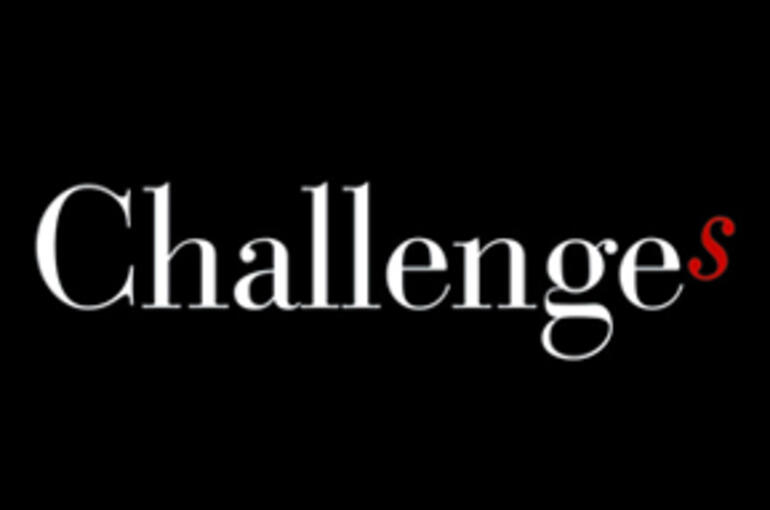- FR
- EN
Instead of vilifying Germany, France should forge a new vision - Editorial for Challenges by Denis Kessler

Chairman & CEO of SCOR, Denis Kessler publishes an editorial piece in the French weekly Challenges, covering economic, political and financial current events in France and worldwide.
France is stuck in near stagnation, whereas Germany has returned to economic health. Let’s look at the facts. France has a budget deficit of 3.5% of GDP; Germany has a budget surplus. France has a current account deficit of 1.2% of GDP, compared with an 8.8% surplus in Germany. The jobless rate is more than 10% here, with near full employment over there. Taxes and social welfare payments as a percentage of GDP are more than 10% higher in France than they are in Germany, and France’s national debt is 98% of GDP compared with Germany’s 68%. A French worker produces €3,000 less every year than his or her German counterpart, whereas the two produced equivalent amounts 30 years ago. We are also falling behind in our rankings!
Regardless of the variable you choose, Germany is doing better than France. And its economic power is giving it a growing political role, both in Europe and the rest of the world. But paradoxically, rather than taking inspiration from Germany, which carried out audacious structural reforms under Gerhard Schröder, everyone in the French political spectrum, from the far left to the far right, loves to criticise Germany! As if the country were responsible for our own vicissitudes and shortcomings! We constantly hear the same story: Germany has a superannuated capitalist system that just barely manages to take care of its pensioners. It’s time to put an end to the German diktat imposed on Greece and the Latin countries. Down with the Franco-German partnership that enabled Europe to move forwards. Let’s declare ourselves divorced and independent, which would let us return to our time-honoured habits of devaluing the currency, piling on debt and deficits and enjoying the pleasures of inflation. And as patriotism is now all the rage, let’s rekindle the embers of history and give voice to the re-emerging anti-German sentiment.
The truth is that France is ill, and for too long has had neither plan nor vision. It’s easy to vilify the “German model” and glorify a putatively superior “French model”. But such a model would first have to exist. Indeed, the countries still seeking to copy us are few and far between. And the “French exception” is regularly invoked to explain why the country has gone astray, which in itself is deplorable in a country that has always proclaimed itself to be universal. Worse still, France is increasingly a source of concern to its principal partner, and this concern is turning into distrust. We are being taken less and less seriously, and the actions of our partners speak volumes. Already considered to be the sick man of Europe, France is becoming the invisible man. It was in Berlin that Barack Obama bade farewell to Europe, and to The Times and Bild that Donald Trump granted interviews.
France has clearly lost influence while Germany has gained it. Indeed, France lost its way twice, both in 1981 and in 1999, when the country chose to redistribute working hours rather than create wealth, when it chose consumption over production and across-the-board socialisation over an economy of individual responsibility. It could have got back on track in the 1990s, when Germany’s SPD and Britain’s New Labour signed the Blair Schröder manifesto establishing a new, modern, social-democratic vision in Europe. But François Hollande and Lionel Jospin, mired in their outdated beliefs, refused to sign it.
Germany has a vision and is pursuing it: to be a great industrial nation based on the production of high-quality goods and services, adapted to global markets, whose growth ensures social and national cohesion. Where is our vision? France needs to create one in the course of the forthcoming presidential election. Such a vision must provide a clear perspective, integrating technological change and demonstrating that we are the masters, not the victims of such change. This vision would mobilise our collective energy, bring our expectations into alignment and give new meaning to our history. Do we want to represent the new post-industrial society, the knowledge society, the society of the reinvented State?
The future of Europe is in play. If France fails again, if it is incapable of setting its own destiny, if populism wins out, the country will lose the historical aura it used to enjoy. To return to its former place, France must strive to match Germany’s performance. To do this, France must undertake a fundamental transformation, not just half-baked reforms, and it must do so immediately and with determination. If France is to recover, it must rebalance the State and civil society to the benefit of the latter. There must be a real transfer of power to companies, to management and labour negotiators, to the regions and to all participants in the knowledge economy. France has an opportunity to reinvent a new type of State, just as it did at the beginning of the 19th century. A modern, democratic and efficient State that it has waited too long to create.